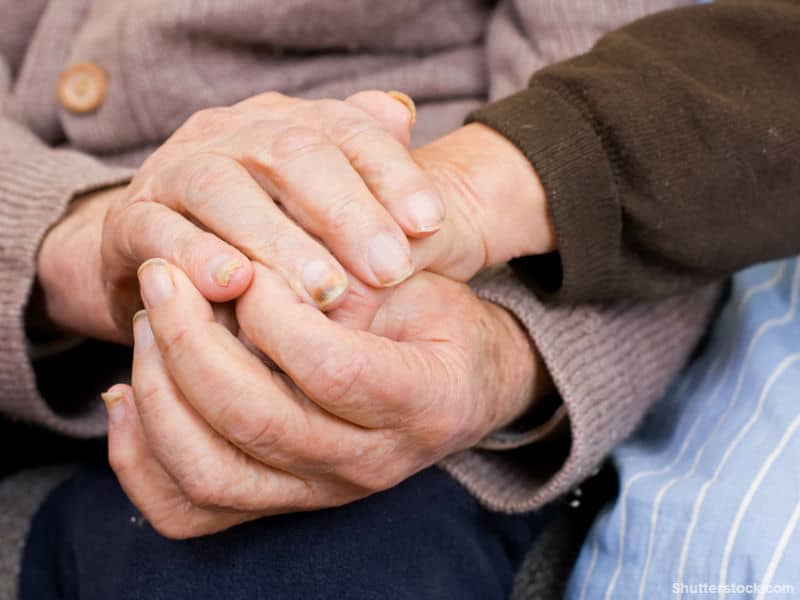
As Christians, we shouldn’t take lightly to God’s command in Exodus 20:12, “Honor your father and your mother, so that you may live long in the land the LORD your God is giving you.” Jesus called us at an early age to take on the physical needs of our parents including their adult care. The caregiving season begins whether or not we’re ready for it. Sometimes it’s sudden – following a stroke, a hip fracture or the death of a spouse who provided daily care. Other times, it comes on gradually, such as caring for parents who have developed Alzheimer’s disease, when very tiny changes slowly but steadily damage the brain. Caring for elderly parents can be quite a challenge. Whether we’re feeling loving or merely dutiful, we are trying to do the right thing by them; however, caring for our aging parents can be really hard sometimes. As our parent’s health declines and our care for them increases, we may find ourselves battling with guilt, negotiating new boundaries and dealing with exhaustion. Often, we’re the brunt of our parents’ anger and frustration over their dependence on others. Even when we rarely doubt ourselves when making decisions for our own children, making decisions while caring for elderly parents is especially difficult. It’s a season in life that requires grace and strength that can only come directly from God. How can we honor our aging parents well and deepen our personal relationship with Christ along the journey?
Grace is a constant theme in the Bible. We see it throughout the New Testament, particularly in the coming of Jesus. Grace means “favor, blessing or kindness”. We have the power to extend grace to others. It’s important that our care for our aging parents is motivated by grace, not by what we think they deserve. We shouldn’t abandon our aging parents, no matter how they treated us in the past or how difficult they’ve become. We should instead focus on God who does not treat us as we deserve or repay us according to our sin against him (Psalm 103:10). We are treated with God’s grace and are called to extend grace to those who depend on us. The Bible tells us, “For it is by grace you have been saved, through faith – and this is not from yourselves, it is the gift of God” (Ephesians 2:8). When the word grace is used in connection with God, it takes on a very powerful meaning. Grace is God choosing to bless us rather than condemn us as our sin deserves. Though we are undeserving of God’s blessing of grace, He still grants us this gift. We should keep God at the forefront of our minds when we’re caring for our aging parents because it is from Him that all grace flows.
The elderly can be seen as burdens as opposed to blessings. Even as children, we can be quick to forget the sacrifices our parents made for us when they are in need for care themselves. We may not value the wisdom they have acquired through living long lives as we think their thoughts are outdated or that they don’t relate to what we’re going through, when they really do. As children of aging parents, we should honor their wisdom and care for them well. The Bible tells us, “Give proper recognition to those widows who are really in need. But if a widow has children or grandchildren, these should learn first of all to put their religion into practice by caring for their own family and so repaying their parents and grandparents, for this is pleasing to God” (1 Timothy 5:3-4). Later, in verse 8 we are told that anyone who does not provide for their relatives or for their household has denied the faith and is worse than an unbeliever. When we not only care for, but honor our parents, we are serving God as well.
The parent caregiving journey can be long and can bring great fatigue and discouragement, particularly when we sacrifice our own interests for their sake. There may be points where you feel weak, broken, unmotivated and even bitter. You may also confront some pretty difficult dynamics such as caring for parents you are still anger with over years of conflict or poor treatment. In these moments, the question we are confronted with is how do we care for parents who emotionally or spiritually neglected us but are now fully dependent on us for their most daily basic needs? It’s important that you bring your burdens to Christ to find rest and strength. The Bible tells us, “Come to me, all you who are weary and burdened, and I will give you rest. Take my yoke upon you and learn from me, for I am gentle and humble in heart, and you will find rest for your souls. For my yoke is easy and my burden is light” (Matthew 11:28-30). Accept Jesus’ gracious invitation.
During the care process, there will be times when we sin against our parents. There will be points when you reach your limit and respond in frustration, exhaustion, bitterness, resentment and guilt. But God’s grace covers us. It is for that sin that God came and died for us. Don’t allow the burden of sin to carry over into the next day and cause more separation in your relationship with them. Bring it to Christ to receive His grace.
When we care for our aging parents’ needs, we give ourselves in ways and to degrees that we hadn’t anticipated. The best outcome is a joyful exchange between you and your aging parents. But there will be moments where the exchange we have with our parents isn’t positive and we feel downright low. In these moments, remember, this is natural: with all the crying, apologizing and hugging and forgiving, family is a place to practice giving and accepting grace. This will help you honor your aging parents well and deepen your personal relationship with Christ along the way.

